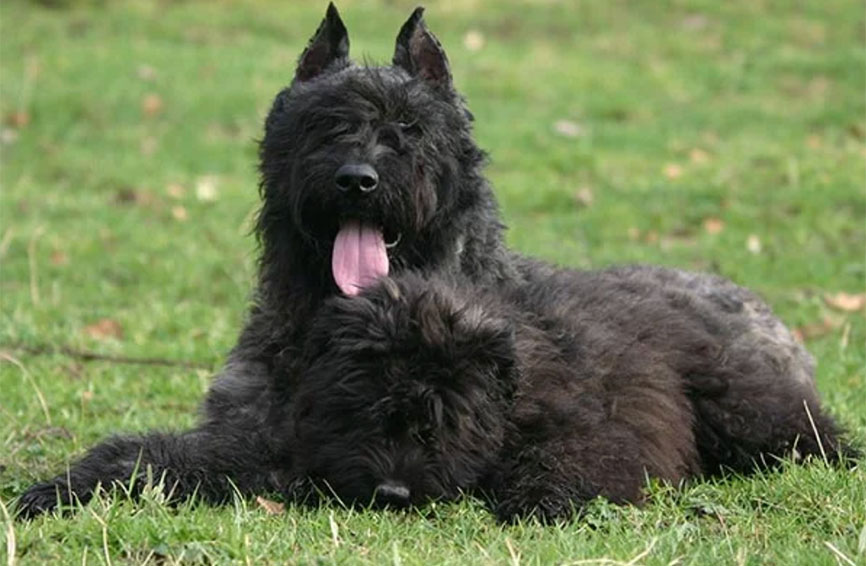Table of Contents
Getting a new puppy is an exciting time that brings added responsibility for pet parents. Aside from picking out new food and toys, pet parents should plan to bring their new canine companions to the veterinarian for vaccinations. These vaccines keep puppies protected from diseases that they are at risk for during their lives. By ensuring their puppies receive the necessary vaccines, pet parents can help their pets stay happy and healthy.
What Types of Puppy Vaccines are Available?
Puppies can receive both core and non-core vaccines from their veterinarians. Core vaccines are recommended for all puppies, and they include rabies and distemper vaccines. Non-core vaccines are considered optional and are given based on certain factors that increase the puppy’s exposure risk, such as location or lifestyle. The Lyme, leptospirosis, Bordetella, influenza, and rattlesnake vaccines are categorized as non-core.
Why Does My Puppy Need Vaccines?
Vaccines are given to protect puppies from diseases that can make them very sick. Pet parents should work with a veterinarian to ensure all vaccine doses are given on time for the best protection. Let’s discuss what vaccines are available for puppies and why they are beneficial.
Rabies vaccines are given to prevent rabies, which is spread through the bite of an infected animal. Rabies causes damage to the nervous system and is fatal. It can also be passed from dogs to people. Vaccinating your puppy against rabies is essential and is often required by law.
Distemper vaccines protect against four types of viruses that can cause diseases, including distemper, adenovirus, parvovirus, and parainfluenza. Canine distemper virus affects the respiratory, gastrointestinal, and nervous systems and is often fatal, while adenovirus can cause disease in many parts of the body. Parvovirus is very common in unvaccinated puppies and can cause severe gastrointestinal disease, which can be fatal. Parainfluenza causes kennel cough, which is highly contagious among dogs. To prevent these diseases, this vaccination is recommended for all dogs.
Lyme vaccines protect against Lyme disease which is spread through the bite of an infected tick. It can cause high fevers and swollen, painful joints. Lyme vaccines are recommended for dogs living in or traveling to an area where ticks are common. Dogs who hike, walk on wooded trails, or spend time in tall grass are also at an increased risk and should be vaccinated.
Leptospirosis vaccines protect against a bacterial disease that is spread through the urine of infected wildlife, rodents, and other dogs. Leptospirosis causes significant liver and kidney damage and can also be spread from dogs to people. Dogs who frequently spend time outdoors may be at risk and should be vaccinated.
Bordetella vaccines protect puppies against kennel cough, while Influenza vaccines protect against canine flu. These highly contagious respiratory infections are easily spread among dogs through close contact. These vaccines should be considered for all puppies who have contact with other dogs, such as through grooming, boarding, visiting dog parks, or attending daycare.
Rattlesnake vaccines help prevent severe reactions following a snake bite. This vaccine is given to dogs who are at an increased risk of coming into contact with rattlesnakes based on where they live or their lifestyles.
Vaccines to Expect During a Puppy’s First Year of Life
Below is a summary chart that describes a typical vaccine schedule for a puppy’s first year of life.
| Vaccine Type | First Dose | Booster Doses | |
| Recommended (Core) Vaccines | Rabies | 12-16 weeks of age | 1 year of age |
| Distemper | 6-9 weeks of age | Every 3-4 weeks until 16 weeks of age; 1 year of age | |
| Optional (Non-Core) Vaccines | Lyme | 12 weeks of age | 3-4 weeks after first dose; 1 year of age |
| Leptospirosis | 12 weeks of age | 3-4 weeks after first dose; 1 year of age | |
| Bordetella | 6-9 weeks of age | 3-4 weeks after first dose if given underneath skin; at 1 year of age if given orally or nasally |
The influenza and rattlesnake vaccines may be recommended within this series based on exposure risk. Pet parents should speak with their veterinarians to determine if and when these vaccines should be given for ideal protection.
After completing the puppy vaccine series, dogs will continue to have vaccines at regular intervals throughout their lives, usually every one to three years, to maintain protection.
What is the Typical Cost of Puppy Vaccines?
The cost for puppy vaccines can vary greatly depending on location and the veterinarian’s recommendations. However, pet parents can generally expect to spend around $150 for core vaccines only. If optional vaccines are recommended, this cost may rise to $300-$400 for all of the vaccines and booster doses. While these costs may seem high, it’s important to remember that the prevention of disease through vaccinations is much less expensive than treating an unvaccinated puppy who gets sick.








